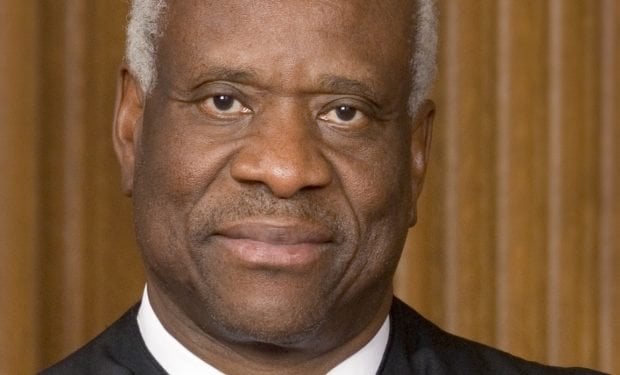
Constitutional scholar and famous Harvard Law Professor Emeritus Laurence Tribe believes the Supreme Court isn’t just considering — as Yale historian Timothy Snyder asserts in the video below — the “dangerous” idea of a presidential immunity that contemplates a person “who can be above the Constitution, outside of the rule of law.”
Sharing Snyder’s thoughts, MSNBC had characterized the Supreme Court situation as one in which “SCOTUS justices flirt with idea Trump’s above the law.” Tribe saw that characterization as weak and insufficient, so he offered a correction based on his hearing of the arguments.
The court isn’t merely “flirting” with granting a dangerous level of immunity to the executive branch, Tribe said. Referring specifically to Donald Trump’s immunity request, Tribe concluded the justices are “having an illicit affair with that idea and preparing to rape democracy with it by giving de facto immunity to a once and future president who would be dictator.”
The Lawrence O’Donnell interview segment with Snyder, who wrote the cautionary ‘On Tyranny’ in 2017 in response to Trump’s election victory, is below.
In a contemporaneous tweet, Tribe quote-tweeted a portion of Gerald Ford‘s pardon of Richard Nixon to emphasize the differences between the cases.
Ford’s pardon of Nixon expressly asserted that the matter of Nixon’s prosecution would be at the discretion of a prosecutor and a grand jury — and that he was “liable to possible indictment and trial for offenses against the United States.”
The Nixon pardon asserted: “As a result of certain acts or omissions occurring before his resignation from the Office of President, Richard Nixon has become liable to possible indictment and trial for offenses against the United States. Whether or not he shall be so prosecuted depends on findings of the appropriate grand jury and on the discretion of the authorized prosecutor. Should an indictment ensue, the accused shall then be entitled to a fair trial by an impartial jury, as guaranteed to every individual by the Constitution.”
Constitutional scholar and famous Harvard Law Professor Emeritus Laurence Tribe believes the Supreme Court isn’t just considering — as Yale historian Timothy Snyder asserts in the video below — the “dangerous” idea of a presidential immunity that contemplates a person “who can be above the Constitution, outside of the rule of law.”
Sharing Snyder’s thoughts, MSNBC had characterized the Supreme Court situation as one in which “SCOTUS justices flirt with idea Trump’s above the law.” Tribe saw that characterization as weak and insufficient, so he offered a correction based on his hearing of the arguments.
The court isn’t merely “flirting” with granting a dangerous level of immunity to the executive branch, Tribe said. Referring specifically to Donald Trump’s immunity request, Tribe concluded the justices are “having an illicit affair with that idea and preparing to rape democracy with it by giving de facto immunity to a once and future president who would be dictator.”
The Lawrence O’Donnell interview segment with Snyder, who wrote the cautionary ‘On Tyranny’ in 2017 in response to Trump’s election victory, is below.
In a contemporaneous tweet, Tribe quote-tweeted a portion of Gerald Ford‘s pardon of Richard Nixon to emphasize the differences between the cases.
Ford’s pardon of Nixon expressly asserted that the matter of Nixon’s prosecution would be at the discretion of a prosecutor and a grand jury — and that he was “liable to possible indictment and trial for offenses against the United States.”
The Nixon pardon asserted: “As a result of certain acts or omissions occurring before his resignation from the Office of President, Richard Nixon has become liable to possible indictment and trial for offenses against the United States. Whether or not he shall be so prosecuted depends on findings of the appropriate grand jury and on the discretion of the authorized prosecutor. Should an indictment ensue, the accused shall then be entitled to a fair trial by an impartial jury, as guaranteed to every individual by the Constitution.”